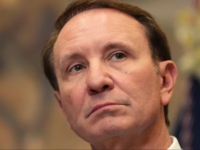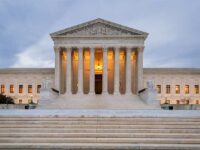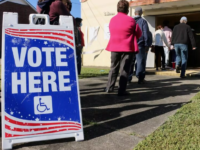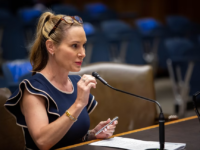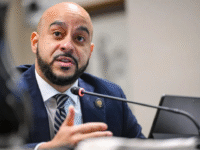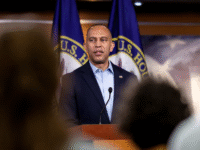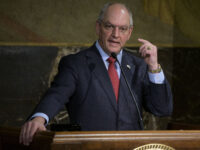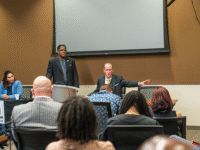In a move that has ignited outrage among historians, curators, and free-speech advocates, President Donald Trump signed an executive order this week directing Vice President Vance to reshape the Smithsonian Institution into a sanitized reflection of “unmatched American greatness.” The order, which Trump has touted as a “restoration of truth,” seeks to cut off federal funding from exhibits and programs that he and his allies deem too critical of the nation’s past—or, in their words, too “woke.”
But for an administration that once railed against so-called “cancel culture,” this sweeping directive amounts to government-dictated censorship—what critics are calling a “glorified book burning.” For years, conservative leaders have portrayed themselves as the guardians of free thought, denouncing any perceived limits on expression as “censorship.” Now, with the stroke of a pen, the Trump White House is demanding that the nation’s most esteemed museums stop discussing history’s nuances, especially those regarding racism, the invention of race as a social construct, or the roles of gender and sexuality in shaping American life.
“Smithsonian museums shouldn’t be turned into indoctrination centers,” the order claims. Yet the administration’s own words reveal a determination to eliminate any aspect of America’s past that might spark introspection. It’s a version of history scrubbed of uncomfortable truths in favor of a one-dimensional narrative of “unparalleled” American virtue. Vice President Vance’s new role on the Smithsonian Board of Regents includes “seeking to remove improper ideology” from museums and exhibits, effectively a green light to muzzle curators if they dare to address the messy, complicated realities of the nation’s founding.
In practice, this directive sounds less like preserving national pride and more like burying documented facts. Much of the order zeroes in on institutions—especially the National Museum of African American History and Culture—that highlight evidence-based research on systemic racism and the social construction of race. By labeling these findings “divisive” or “negative,” the administration conflates historical veracity with political indoctrination.
Equally eye-opening is the White House’s bristling reaction to science-based statements like “Race is a human invention,” which is, in fact, widely accepted by anthropologists, geneticists, and historians alike. Dismissing exhibits that discuss the origins of racial thinking as “unpatriotic” is particularly revealing, given how often conservatives have insisted for decades that government has no right to interfere in private thought and free inquiry.
But perhaps nothing better illustrates the irony of all this than the administration’s righteous fury at “woke ideology.” For many on the right, “woke” has become a catchall term for any conversation about race, gender, or inequality—no matter how factual. In historical scholarship, nuance is not “indoctrination.” Documenting where we’ve fallen short as a nation does not negate the principles of liberty and individual rights. Rather, it’s the very honesty that spurs communities and policymakers to grow beyond the mistakes of the past. Calling museums “woke” for telling the truth is a tacit admission that when conservatives cry “woke,” what they really mean is “honest” and “factual”—and it’s precisely this honesty they’d prefer to see removed from public discourse.
Although the White House claims that exhibits focusing on race and the broader American experience create “national shame,” historians point out that it’s actually the refusal to grapple with our entire story that leaves us ill-equipped to build the “more perfect Union” the president’s own order claims to celebrate. “Erasing black, Indigenous, women’s, and LGBTQ+ perspectives isn’t patriotism—it’s propaganda,” says one long-serving Smithsonian curator, who spoke on the condition of anonymity for fear of retribution. “We’re being told to essentially revise reality. That’s the exact censorship conservatives have always claimed to oppose.”
The directive’s culture-war bombshell goes beyond the debate over racism or historical legacy. Section 2 references the forthcoming Smithsonian American Women’s History Museum, warning that federal funds must “not recognize men as women in any respect” and forbidding “male athletes” from being celebrated in a women’s sports exhibit. Critics note that this language mirrors current right-wing activism against transgender individuals, once again rebranding a targeted exclusion of real stories and real people as “protecting” the public from a “divisive narrative.”
The Trump administration’s stated goal of promoting “solemn and uplifting” museums might sound innocuous if it weren’t for the strong-arm approach. Tying museum funding to a political litmus test is effectively an ultimatum: conform to a White House-approved version of American history or risk losing federal support. This tactic is especially chilling given that the Smithsonian is one of the most revered institutions for cultural and historical preservation in the country—one whose exhibits typically emerge from rigorous peer review by experts in relevant fields.
Vice President Vance’s instructions, aided by White House officials and bolstered by budgetary threats from the Office of Management and Budget, have made it clear that museums deviating from an official narrative will be defunded or otherwise punished. It’s a high-stakes gamble, pitting the intellectual independence of a globally respected network of museums against a president all too comfortable using the levers of federal power to champion a single, politically expedient account of American history.
For critics, it all amounts to a bald-faced maneuver to rewrite the past. “Calling it anything other than censorship would be naive,” warns an advocate from the National Coalition Against Book Bans. “The administration’s attempt to freeze out uncomfortable truths from the American conversation is a literal manifestation of what we’ve been warning about for decades: conservatives who resent being called censors now eagerly participate in a top-down crusade to silence viewpoints they dislike.”
As the Smithsonian’s curators brace for a showdown, many are left wondering how far the White House will go. Will the White House next threaten to seize specific exhibits if they’re not “patriotic” enough? Will historians be pressured to omit references to slavery, Jim Crow, Japanese-American internment, or the struggles of women’s suffrage?
While the White House insists this is about preserving America’s self-esteem, it’s clear that these new rules would push the nation’s most storied museums away from the complexity and scholarship that make them cornerstones of global knowledge. By removing or revising exhibits that acknowledge inequality and oppression, Trump and his allies seem to believe they can manufacture an unblemished image of the country. But eradicating acknowledgement of where we’ve come up short in the past robs us of the very humility and perspective that fuel progress. It’s the antithesis of honest historical reckoning—a direct contradiction of free expression, public enlightenment, and perhaps most ironically of all, the centuries-old conservative claim to be defenders against government intrusion into public life.
For historians, for museum professionals, and for citizens who trust these institutions to tell the nation’s whole story, one truth now stands out: trying to force a single, state-sanctioned version of events represents perhaps the greatest threat to free thought of all. With this latest blow, the Trump administration undercuts its own years of railing against “censorship,” revealing that the moment the truth becomes inconvenient, it’s the first target on the chopping block. If this battle at the Smithsonian is any indication, we face a future where calling a museum “woke” is simply code for “we refuse to engage with actual facts.”
And that’s a deeper tragedy for a society that claims to cherish an open marketplace of ideas.


